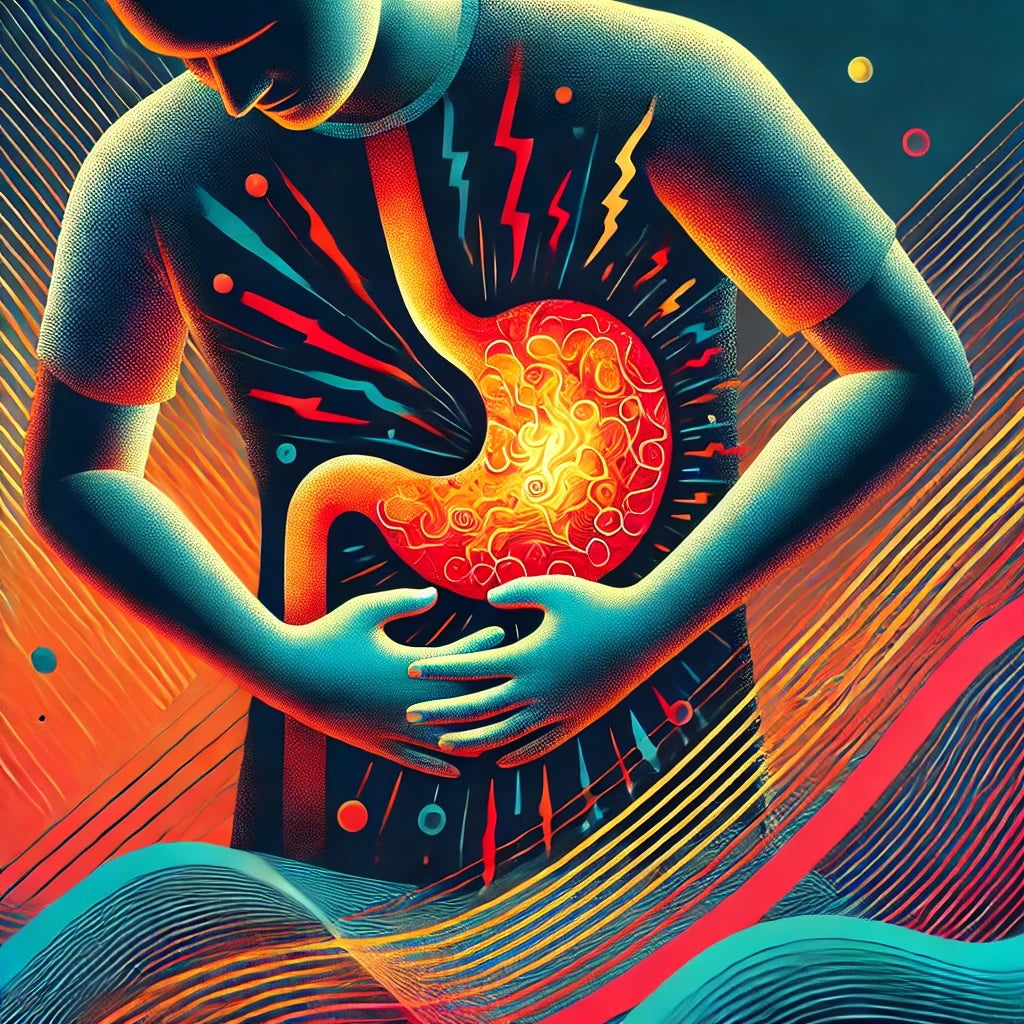
What Does Indigestion Feel Like? Understanding the Symptoms and Causes
Share
📖 Word Count: ~1,200 words
⏳ Estimated Reading Time: 6 minutes
Indigestion, also known as dyspepsia, is a common digestive issue that affects millions of people worldwide. While often harmless, it can be uncomfortable, frustrating, and sometimes a sign of an underlying condition. Understanding what indigestion feels like—and what causes it—can help you manage symptoms and prevent discomfort.
🩺 What Does Indigestion Feel Like?
Indigestion can manifest in several ways, depending on its cause and severity. People experiencing indigestion commonly describe the following sensations:
🔥 Burning Discomfort: A warm or burning sensation in the upper abdomen, sometimes extending to the chest, can occur. This may be due to acid irritation or reflux.
😣 Fullness or Pressure After Eating: Many people with indigestion feel uncomfortably full, even after a small meal. This sensation is often linked to delayed stomach emptying (gastroparesis) or overeating.
⚡ Bloating & Gassiness: A tight, swollen feeling in the stomach can accompany indigestion, often due to excessive gas production or poor digestion of certain foods.
🤢 Nausea or Queasiness: Indigestion may cause mild nausea, sometimes leading to vomiting, particularly if it’s triggered by eating rich, fatty, or spicy foods.
💨 Burping or Acidic Taste in the Mouth: Some people experience frequent belching or a sour taste in the mouth, which could indicate acid reflux.
💔 Mild Chest Discomfort: While indigestion is not heart-related, it can sometimes mimic heartburn, with discomfort in the chest that worsens after eating.
🔎 What Causes Indigestion?
Several factors contribute to indigestion, ranging from dietary habits to underlying health conditions. Here are some of the most common causes:
🍕 Dietary Triggers – Spicy, fatty, or acidic foods can irritate the stomach lining and slow digestion. Overeating or eating too quickly can also contribute to discomfort.
☕ Caffeine & Alcohol – Both can increase stomach acid production and irritate the digestive tract, worsening indigestion.
⚡ Stress & Anxiety – The gut and brain are closely connected. Emotional stress can slow digestion or trigger stomach acid imbalances.
💊 Medications – Some drugs, including NSAIDs (ibuprofen, aspirin) and certain antibiotics, can cause indigestion by irritating the stomach lining.
👎 Acid Reflux & GERD – When stomach acid backs up into the esophagus, it can cause a burning sensation that feels similar to indigestion.
🚫 Lactose or Food Intolerances – Difficulty digesting certain foods (like dairy or gluten) can lead to bloating, gas, and discomfort.
🦠 H. Pylori Infection – This bacterial infection is a common cause of chronic indigestion and is associated with ulcers.
🛠️ How to Relieve Indigestion?
If you’re experiencing occasional indigestion, simple lifestyle changes and home remedies can help alleviate symptoms:
✅ Eat Smaller, More Frequent Meals – Large meals can overload the stomach and slow digestion. Try eating smaller portions more frequently to ease discomfort.
🧘 Reduce Stress – Since stress can worsen indigestion, relaxation techniques like deep breathing, meditation, or yoga can help regulate digestion.
💦 Stay Hydrated – Drinking plenty of water (but avoiding too much during meals) can help prevent stomach irritation.
🚶 Stay Active After Eating – Going for a light walk after meals encourages digestion and prevents bloating.
🚫 Avoid Lying Down Right After Eating – Wait at least 2-3 hours before lying down to prevent acid reflux and indigestion.
🍋 Try Ginger or Peppermint – Ginger can help ease nausea, while peppermint may relax the digestive tract and relieve bloating.
📢 When to See a Doctor?
While occasional indigestion is normal, you should seek medical attention if you experience:
🚨 Severe, persistent discomfort that does not improve with lifestyle changes.
💔 Chest pain that spreads to your arm, jaw, or back (as this could indicate a heart issue rather than indigestion).
🤢 Unexplained nausea, vomiting, or weight loss.
⚠️ Black, tarry stools or vomiting blood (potential signs of an ulcer or internal bleeding).
If symptoms persist for more than two weeks, it’s a good idea to check with a healthcare professional to rule out any underlying conditions.
🌟 Final Thoughts
Indigestion is a common but manageable condition that can be triggered by diet, stress, medications, or underlying health issues. Recognizing what indigestion feels like—and what causes it—can help you take proactive steps to ease symptoms and support digestive health.
💡 Want more science-backed gut health insights? Stay tuned for expert tips on nutrition, digestion, and overall wellness!
#GutHealth #IndigestionRelief #DigestiveWellness #HealthyLiving #MicrobiomeMatters




